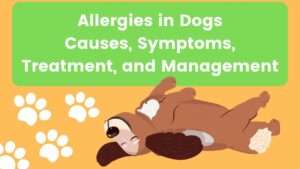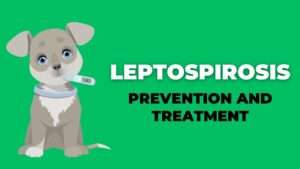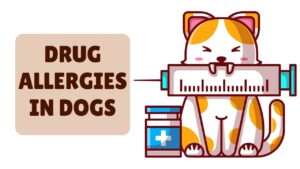Dogs are beloved companions, cherished members of the family, and often considered our best friends. However, just like humans, they can experience health issues, one of the most common being vomiting. As a responsible pet owner, understanding why your dog is vomiting and how to respond is crucial for their well-being and your peace of mind.
In this comprehensive guide, we’ll delve into everything you need to know about dog vomiting, including its causes, symptoms, treatment options, and when to seek veterinary care. Whether you’re a seasoned pet owner or a new puppy parent, this guide will equip you with the knowledge to navigate this common concern with confidence.
Contents Overview
Causes of Dog Vomiting
Understanding the causes of dog vomiting is essential for identifying the underlying issue and implementing appropriate measures to address it effectively. Vomiting in dogs can result from various factors, ranging from benign dietary indiscretion to serious health conditions. Let’s explore each potential cause in detail:
- Dietary Indiscretion:
- Dogs are notorious for their scavenging behavior and may ingest inappropriate or spoiled food, garbage, or non-food items such as toys, socks, or rocks.
- Overeating, rapid consumption of food, or sudden dietary changes can overwhelm the stomach, leading to vomiting.
- Rich or fatty foods, table scraps, and human foods toxic to dogs (e.g., chocolate, onions, garlic) can also trigger vomiting.
- Gastrointestinal Issues:
- Gastritis: Inflammation of the stomach lining can result from dietary indiscretion, infections, or medications. It may present with vomiting, abdominal discomfort, and loss of appetite.
- Gastroenteritis: Inflammation of the stomach and intestines can be caused by bacterial or viral infections, dietary indiscretion, parasites, or stress. Symptoms include vomiting, diarrhea, lethargy, and dehydration.
- Inflammatory Bowel Disease (IBD): This chronic condition involves inflammation of the gastrointestinal tract and can lead to vomiting, diarrhea, weight loss, and poor appetite.
- Parasitic Infections: Intestinal parasites such as roundworms, hookworms, whipworms, or giardia can cause gastrointestinal upset and vomiting in dogs.
- Toxic Ingestion:
- Dogs may ingest toxic substances found in household chemicals, certain plants (e.g., lilies, azaleas), medications (e.g., NSAIDs, acetaminophen), or common human foods like chocolate, grapes, raisins, onions, garlic, or xylitol.
- Toxic ingestion can lead to vomiting, diarrhea, drooling, tremors, seizures, and other symptoms of poisoning. Prompt veterinary care is crucial in cases of suspected poisoning.
- Infections:
- Viral Infections: Canine distemper, parvovirus, and coronavirus are viral infections that can cause gastrointestinal symptoms, including vomiting, diarrhea, and fever.
- Bacterial Infections: Bacterial gastroenteritis, caused by pathogens such as Salmonella, Campylobacter, or E. coli, can result in vomiting, diarrhea, abdominal pain, and fever.
- Other Infections: Infections of the gastrointestinal tract, liver (hepatitis), or pancreas (pancreatitis) can lead to vomiting in dogs and may require specific treatment.
- Underlying Health Conditions:
- Kidney Disease: Chronic kidney disease (renal failure) can cause vomiting, lethargy, loss of appetite, increased thirst, and changes in urination habits.
- Liver Disease: Hepatic conditions such as hepatitis or liver failure can present with vomiting, jaundice (yellowing of the skin and eyes), abdominal swelling, and changes in stool color.
- Pancreatitis: Inflammation of the pancreas can result from dietary indiscretion, obesity, or other factors, leading to vomiting, abdominal pain, diarrhea, and decreased appetite.
- Endocrine Disorders: Conditions affecting the thyroid gland (hypothyroidism or hyperthyroidism) or adrenal glands (Cushing’s disease or Addison’s disease) can manifest with vomiting and other symptoms.
- Motion Sickness:
- Some dogs experience vomiting or nausea when traveling in cars, boats, or planes due to motion sickness. Symptoms may include drooling, restlessness, panting, and vomiting.
Identifying the specific cause of vomiting in your dog may require a thorough veterinary examination, including a physical assessment, diagnostic tests (such as blood work, fecal analysis, imaging studies), and a detailed history of your dog’s diet, environment, and recent activities.
Symptoms of Dog Vomiting
Recognizing the symptoms of dog vomiting is crucial for identifying when your furry friend is experiencing gastrointestinal distress. While vomiting itself is the most obvious sign, there are several accompanying symptoms to watch for that can provide valuable insights into your dog’s health. Here’s a detailed explanation of the symptoms of dog vomiting:
- Vomiting:
- Vomiting in dogs refers to the forceful expulsion of stomach contents through the mouth.
- It may occur as a single episode or multiple episodes within a short period.
- Vomiting may be preceded by retching, drooling, or signs of discomfort.
- Excessive Drooling:
- Dogs experiencing nausea or vomiting may exhibit increased salivation or drooling.
- Excessive drooling may occur before, during, or after vomiting episodes.
- It can be a sign of discomfort or distress in your dog’s gastrointestinal tract.
- Lethargy or Weakness:
- Dogs suffering from vomiting may appear lethargic, tired, or weak.
- They may lack energy, enthusiasm, or interest in normal activities.
- Lethargy can indicate underlying illness or dehydration associated with vomiting.
- Loss of Appetite:
- Vomiting often leads to a decreased appetite or reluctance to eat.
- Your dog may refuse meals or show disinterest in food, treats, or snacks.
- Loss of appetite can contribute to weight loss and nutritional deficiencies if not addressed promptly.
- Diarrhea:
- In some cases, vomiting may be accompanied by diarrhea, resulting in loose or watery stools.
- Diarrhea can further contribute to dehydration and electrolyte imbalances in dogs.
- Concurrent vomiting and diarrhea may suggest a more severe gastrointestinal issue.
- Abdominal Pain or Discomfort:
- Dogs experiencing vomiting may exhibit signs of abdominal discomfort or pain.
- They may arch their back, whine, pace, or exhibit tense abdominal muscles.
- Pain or discomfort may indicate underlying inflammation, obstruction, or other gastrointestinal issues.
- Blood in Vomit or Stool:
- Vomiting blood (hematemesis) or passing bloody stools (melena) is a concerning symptom.
- Blood in vomit may appear bright red or resemble coffee grounds, indicating potential bleeding in the upper gastrointestinal tract.
- Blood in stool may indicate bleeding in the lower gastrointestinal tract and requires immediate veterinary attention.
- Dehydration:
- Persistent vomiting can lead to dehydration, especially if your dog is unable to keep water down.
- Signs of dehydration include dry gums, sunken eyes, tacky or sticky mucous membranes, and increased thirst.
- Dehydration can exacerbate vomiting and may require fluid therapy to restore hydration and electrolyte balance.
- Other Signs:
- Additional signs associated with vomiting in dogs may include fever, lethargy, weight loss, excessive thirst, changes in urination habits, or abnormal behavior.
- Depending on the underlying cause, your dog may exhibit specific symptoms related to the triggering factor (e.g., neurological signs with toxin ingestion, respiratory symptoms with aspiration pneumonia).
Recognizing these symptoms and monitoring your dog’s condition closely can help you determine when veterinary intervention is necessary. If your dog experiences persistent vomiting, exhibits concerning symptoms, or appears unwell, seek prompt veterinary care to address the underlying issue and ensure your dog’s well-being. Early intervention can prevent complications and facilitate a speedy recovery for your furry companion.
Treatment Options
Treatment options for dog vomiting vary depending on the underlying cause, severity of symptoms, and overall health status of the dog. While mild cases of vomiting may resolve with home care, more severe or persistent vomiting may require veterinary intervention. Here’s a detailed explanation of treatment options for dog vomiting:
- Home Care:
- For mild cases of vomiting without any accompanying serious symptoms, home care may be sufficient.
- Withhold food for 12-24 hours to allow the stomach to settle and reduce irritation.
- Offer small amounts of water or ice cubes to prevent dehydration. Provide frequent, small sips rather than large amounts at once.
- Once vomiting subsides, gradually reintroduce a bland diet such as boiled chicken and rice in small, frequent meals.
- Monitor your dog closely for any worsening symptoms and resume regular feeding gradually.
- Veterinary Evaluation:
- If vomiting persists for more than 24 hours, is accompanied by other concerning symptoms, or if your dog is lethargic or in distress, seek prompt veterinary care.
- Your veterinarian will perform a thorough physical examination to assess your dog’s overall health and may recommend diagnostic tests to determine the underlying cause of vomiting.
- Diagnostic tests may include blood work, fecal analysis, imaging studies (X-rays or ultrasound), and possibly endoscopy or biopsy for further evaluation.
- Medication:
- Depending on the diagnosis, your veterinarian may prescribe medications to alleviate vomiting, manage underlying conditions, or address specific symptoms.
- Antiemetic medications (anti-vomiting drugs) such as maropitant (Cerenia) or metoclopramide may be prescribed to reduce nausea and vomiting.
- If an infection is suspected, antibiotics or antiparasitic medications may be prescribed to treat the underlying cause.
- Additional medications such as gastric protectants (e.g., sucralfate) or proton pump inhibitors (e.g., omeprazole) may be recommended to protect the gastrointestinal tract and reduce stomach acid production.
- Fluid Therapy:
- In cases of severe vomiting or dehydration, your dog may require fluid therapy to restore hydration and electrolyte balance.
- Fluids may be administered orally or intravenously, depending on the severity of dehydration and your dog’s ability to tolerate fluids by mouth.
- Electrolyte solutions may be provided to replace lost fluids and maintain proper electrolyte levels in the body.
- Nutritional Support:
- In cases where your dog is unable to tolerate solid food, liquid diets or prescription veterinary diets formulated for gastrointestinal health may be recommended.
- Nutritional support may be provided through syringe feeding, feeding tubes, or specialized diets designed to be easily digestible and gentle on the stomach.
- Management of Underlying Conditions:
- If vomiting is secondary to an underlying health condition such as kidney disease, liver disease, pancreatitis, or inflammatory bowel disease, your veterinarian will develop a treatment plan to manage the underlying condition.
- Treatment may involve dietary modifications, medication management, lifestyle changes, and regular monitoring to optimize your dog’s health and prevent recurrent vomiting episodes.
- Hospitalization and Monitoring:
- In severe cases of vomiting associated with dehydration, electrolyte imbalances, or complications such as gastrointestinal obstruction or organ dysfunction, your dog may require hospitalization for intensive care and monitoring.
- Hospitalization allows for close monitoring of your dog’s condition, administration of intravenous fluids and medications, and prompt intervention in case of any complications.
- Surgery:
- In rare cases where vomiting is caused by a gastrointestinal obstruction, tumor, or other structural abnormalities, surgical intervention may be necessary to address the underlying issue.
- Surgery aims to remove the obstruction, repair any damage to the gastrointestinal tract, and restore normal function.
- Follow-up Care:
- After initial treatment, follow-up appointments with your veterinarian may be recommended to monitor your dog’s progress, adjust treatment as needed, and address any ongoing concerns.
- Your veterinarian can provide guidance on dietary management, medication administration, and preventive measures to minimize the risk of recurrent vomiting episodes.
It’s important to follow your veterinarian’s recommendations closely and communicate any changes in your dog’s condition or response to treatment. With proper care and treatment, many cases of dog vomiting can be effectively managed, leading to a speedy recovery and improved quality of life for your furry companion.
When to Seek Veterinary Care
Knowing when to seek veterinary care for your dog’s vomiting is crucial for ensuring timely intervention and appropriate management of their health. While occasional vomiting may not always indicate a serious problem, certain signs and circumstances warrant prompt veterinary attention. Here’s a detailed explanation of when to seek veterinary care for dog vomiting:
- Persistent Vomiting:
- If your dog is vomiting repeatedly or frequently over a short period, it’s essential to seek veterinary care. Persistent vomiting can lead to dehydration, electrolyte imbalances, and other complications if left untreated.
- Keep track of the frequency, timing, and character of your dog’s vomiting episodes to provide valuable information to your veterinarian.
- Blood in Vomit or Stool:
- Vomiting blood (hematemesis) or passing bloody stools (melena) is a concerning symptom that requires immediate veterinary attention.
- Blood in vomit may appear bright red or resemble coffee grounds, indicating potential bleeding in the upper gastrointestinal tract.
- Blood in stool may suggest bleeding in the lower gastrointestinal tract and should be evaluated by a veterinarian promptly.
- Lethargy or Weakness:
- If your dog appears lethargic, weak, or unusually tired in conjunction with vomiting, it may indicate an underlying health issue that requires veterinary evaluation.
- Lethargy can be a sign of dehydration, electrolyte imbalances, pain, or systemic illness, all of which warrant veterinary assessment and treatment.
- Loss of Appetite:
- A significant decrease in appetite or refusal to eat accompanied by vomiting is cause for concern and should prompt a visit to the veterinarian.
- Loss of appetite can exacerbate dehydration and nutrient deficiencies and may indicate underlying gastrointestinal issues, infections, or other health conditions.
- Dehydration:
- If your dog is unable to keep water down or exhibits signs of dehydration such as dry gums, sunken eyes, tacky mucous membranes, or increased thirst, veterinary care is necessary.
- Dehydration can occur rapidly, especially in cases of persistent vomiting, and requires prompt intervention with fluid therapy to restore hydration and electrolyte balance.
- Abdominal Pain or Discomfort:
- Signs of abdominal pain or discomfort such as whining, restlessness, pacing, or reluctance to move may indicate underlying gastrointestinal issues or other health problems.
- Abdominal pain may be associated with conditions such as gastritis, pancreatitis, gastrointestinal obstruction, or inflammatory bowel disease and should be evaluated by a veterinarian.
- Other Concerning Symptoms:
- Additional symptoms such as diarrhea, fever, weight loss, excessive thirst, changes in urination habits, or abnormal behavior may accompany vomiting and indicate underlying health issues.
- If your dog exhibits multiple concerning symptoms or shows signs of distress, it’s important to seek veterinary care promptly for a comprehensive evaluation and appropriate treatment.
- History of Health Problems:
- Dogs with pre-existing health conditions such as kidney disease, liver disease, diabetes, or inflammatory bowel disease may be more susceptible to vomiting and require closer monitoring and veterinary care.
- If your dog has a history of chronic health problems or recurrent vomiting episodes, it’s essential to consult with your veterinarian for ongoing management and preventive care.
In summary, if your dog experiences persistent vomiting, blood in vomit or stool, lethargy, loss of appetite, dehydration, abdominal pain, or other concerning symptoms, it’s crucial to seek veterinary care promptly. Early intervention can help identify the underlying cause of vomiting and initiate appropriate treatment to ensure the best possible outcome for your furry companion. Don’t hesitate to contact your veterinarian if you have any concerns about your dog’s health or well-being.
Bottom Line
Dog vomiting is a common concern among pet owners, but it can signify a range of underlying issues, from benign to life-threatening. By understanding the potential causes, recognizing accompanying symptoms, and knowing when to seek veterinary care, you can ensure prompt and appropriate management of your dog’s health. Remember, early intervention is key to resolving vomiting and preventing complications, so always prioritize your dog’s well-being and consult your veterinarian if you have any concerns. With proper care and attention, you can help your furry friend recover and continue enjoying a happy, healthy life by your side.




































+ There are no comments
Add yours